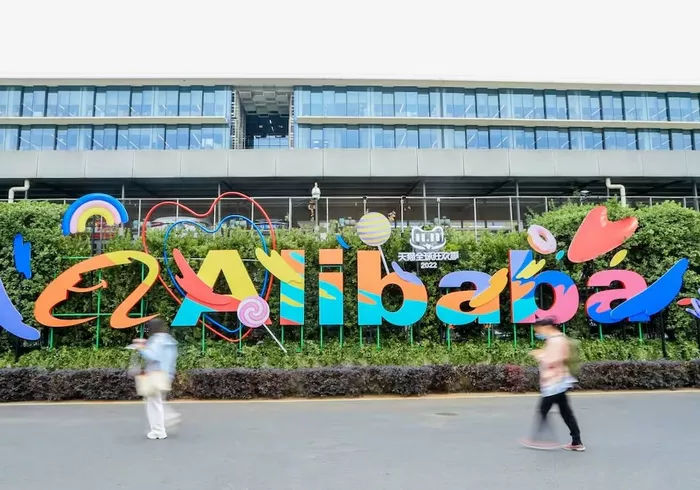Luxury fashion houses are stepping away from aggressive discounting in China as part of a broader effort to restore their image of exclusivity and appeal to affluent consumers, whose spending habits remain more stable despite broader economic uncertainty.
According to data from consultancy Re-Hub, none of the items listed by Kering SA’s Balenciaga on Tmall — China’s leading e-commerce platform — were discounted during the first quarter of 2025. This strategy continued even through China’s largest online shopping event in November. This marks a sharp departure from the previous year, when the brand offered an average discount of around 41% on Tmall, a platform owned by Alibaba Group Holding Ltd.
Similarly, Versace — which is being acquired by Prada SpA in a $1.4 billion deal — reduced the share of discounted products on Tmall to just 3% in Q1, down from 12% in 2024. The price cuts were also less steep than before.
Valentino Fashion Group SpA followed suit by reducing the number of discounted items in January, and eliminating markdowns altogether in February and March.
This restraint from discounting seems counterintuitive given the overall decline in market demand, but experts see it as a strategic shift.
“It’s a move from chasing traffic and short-term revenues to cultivating long-term brand affinity,” said Max Peiro, CEO of Re-Hub. “This shift is not merely operational — it’s foundational. Brands are investing in relevance, desirability, and premium experiences to foster long-term loyalty.”
Peiro added that frequent discounting no longer effectively drives sales and can damage a brand’s perceived value. In contrast, luxury giants like Hermès, Chanel, and Louis Vuitton — traditionally resistant to public markdowns — are reinforcing exclusivity by ramping up VIP-only events and curated shopping experiences, including in-store exhibitions.
This new strategy aligns with broader changes in China’s luxury landscape. For years, luxury growth in China was fueled by a burgeoning middle class, but that engine is now sputtering. Economic concerns — such as a prolonged property market downturn and sluggish post-pandemic recovery — have made mid-tier consumers more price-sensitive, turning to affordable alternatives or delaying discretionary spending altogether.
According to Bain & Co., China’s luxury market contracted by as much as 20% last year. In response, luxury brands are focusing more intently on high-net-worth individuals who remain willing to spend, regardless of the weaker consumer sentiment.
This refocusing is not limited to China. Brands are also navigating uncertainty in the United States, where consumer sentiment has dipped to its lowest point in nearly five years. Contributing to this unease are economic policies, including tariffs associated with Donald Trump’s administration. Reflecting these global pressures, a benchmark index tracking major European luxury stocks has fallen by 7.4% in 2025.
Requests for comment from Balenciaga, Versace, Valentino, and Alibaba were not answered.
The pricing adjustments also highlight a growing understanding of Tmall’s influence on brand perception in China, according to Jacques Roizen, managing director of China consulting at Digital Luxury Group. As more sales shift online, pricing strategies on platforms like Tmall are becoming key indicators of broader brand direction.
While top-tier brands like Chanel and Hermès still conduct the bulk of their business in physical retail locations, digital sales channels are increasingly vital for secondary luxury brands. Last year, e-commerce accounted for 46% of China’s total luxury sales and is projected to outpace brick-and-mortar retail within three to five years, according to consultancy Yaok Group.
With fewer discounts, some brands may struggle to manage surplus inventory. Previous deep discounts on Tmall were often a response to unsold stock. Nevertheless, not every label is shunning markdowns. For example, Chloé (owned by Richemont) and Michael Kors (under Capri Holdings Ltd.) continue to offer discounts on Tmall comparable to last year’s.
Both Chloé and Michael Kors declined to comment.
Despite these mixed approaches, a growing number of labels are realigning their Chinese pricing with global practices — favoring discreet private sales over public markdowns. These invite-only events typically occur only a few times a year, helping maintain an aura of exclusivity.
“While smaller discounts may pressure short-term inventory clearance capabilities, the shift ensures a consistent brand message across all consumer touchpoints,” Roizen said. “Brands that adapt early to this strategy are likely to lead the market recovery.”
As global luxury brands navigate changing market dynamics in China and beyond, those that double down on brand value and exclusivity may be best positioned for long-term success.
Related Topics
- Under Armour Unveils Eco-Friendly Sportswear That Turns Into Compost
- Warehouse Workers Behind NYC’s Elite Brands Push for Union Recognition
- Peppermayo Sparks Fresh Outrage Over Influencer Trips Amid Ongoing Customer Order Delays

